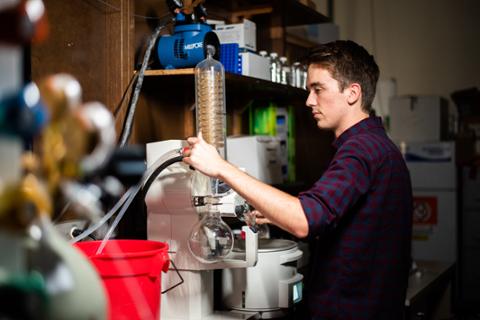Forensic Chemistry
Major in Chemistry with an Emphasis in Forensic ChemistryAnalyze chemical evidence to solve crimes in our Forensic Chemistry program.
Conduct groundbreaking research, like using new methods to detect toxins. Learn lab techniques to analyze evidence and support justice.

Career options for grads in the Forensic Chemistry track
Graduates of the Forensic Chemistry track have diverse career options in various sectors. Here are some potential career paths:
- Forensic Scientist: Work in crime labs analyzing physical evidence to assist in criminal investigations.
- Toxicologist: Study the effects of chemicals on living organisms and analyze bodily fluids and tissues for the presence of toxins.
- Crime Scene Investigator: Collect and analyze evidence from crime scenes to support criminal investigations.
- Drug Analyst: Test substances to identify drugs and their composition, often working with law enforcement agencies.
- Environmental Chemist: Analyze environmental samples to detect pollutants and support environmental protection efforts.
- Research Scientist: Conduct research in academic or private labs to develop new forensic techniques and technologies.
- Chemical Safety Officer: Ensure the safe handling and disposal of chemicals in various industries, including forensic labs.
- Quality Control Analyst: Work in pharmaceutical or chemical companies to ensure products meet safety and quality standards.
- Consultant: Provide expert analysis and testimony in legal cases involving chemical evidence.
- Educator: Teach forensic chemistry at high schools, colleges, or universities, sharing expertise with the next generation of scientists.
Additional information
Chemistry - Forensic Chemistry Degree Map download
Catalog – see catalog for the School of Science and Mathematics